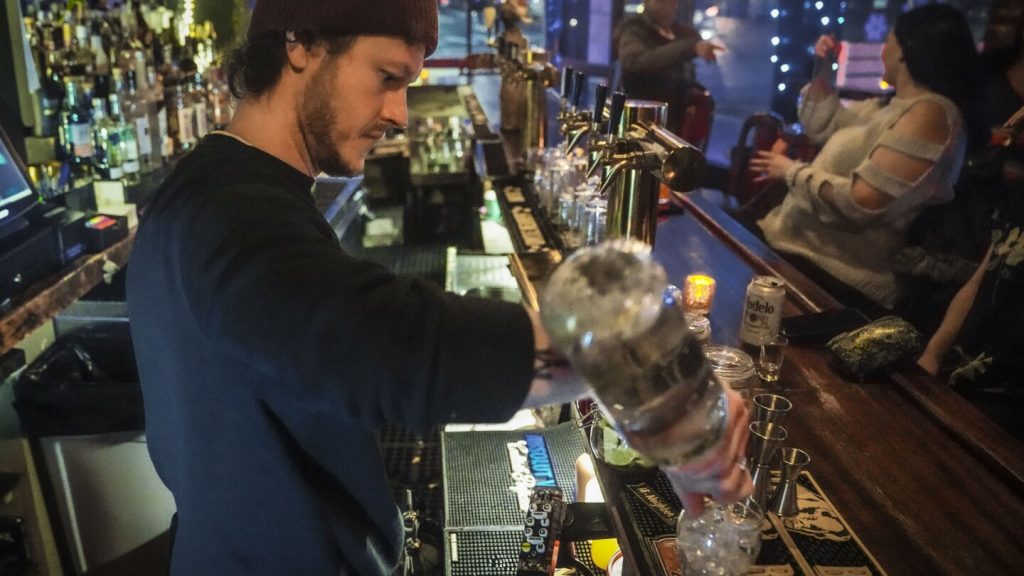New York state legislators are considering a bill that would require towns and villages with post-Prohibition bans on alcohol sales to lift those restrictions. The bill aims to overturn a law passed in 1934 that allowed communities to opt to remain dry. Currently, New York has seven communities with complete bans on alcohol sales. State Senator James Skoufis, the bill’s sponsor, believes that lifting these restrictions will encourage business growth and allow residents to enjoy a glass of wine with dinner at local restaurants. He argues that the Prohibition era is over, and it’s time to modernize these outdated laws.
The potential impact of the bill on local businesses is a topic of discussion among residents in dry towns. Brittany Gerould, a general manager at a restaurant in Clymer, sees lifting the ban as a way to bring in more profits. She notes that the absence of alcohol sales limits their business, especially on nights like Saturdays. However, not everyone supports the idea of lifting the restrictions. Philip G. Stockin, the deputy town supervisor of Caneadea, is concerned about alcohol abuse and prefers to maintain the status quo. He believes that state mandates take away control from local communities, impacting their ability to make decisions that align with their values.
Residents of towns like Lapeer and Orwell, where alcohol sales are currently banned, have mixed opinions on the potential changes. Cindy Butler McFarland, the town clerk of Lapeer, mentions that most people in their town already purchase alcohol in nearby areas, even if they have to drive to do so. Despite the possibility of lifting the ban, she doubts that new establishments selling alcohol would open in Lapeer, given the presence of a grocery store in the neighboring town. On the other hand, Desiree Brown, the bar manager at the Olde School Pub in Sandy Creek, sees an opportunity to meet the demand for a pub or bar in the nearby dry town of Orwell, as residents there express a desire for such establishments.
In towns like Argyle, which recently voted to remove its dry status in 2019, the decision has been met with positive outcomes. Renee Montero-Kober, the deputy town clerk of Argyle, highlights how residents were tired of traveling to neighboring towns to purchase alcohol and losing potential revenue. With the ban lifted, residents now have the option to buy alcohol locally, leading to an increase in revenue and convenience. The experiences of towns like Argyle serve as examples of the potential benefits of lifting alcohol sales bans in dry communities.
Overall, the debate over whether to lift alcohol sales bans in New York towns and villages is ongoing. While some residents and businesses see opportunities for growth and increased revenue, others express concerns about alcohol abuse and loss of local control. As the bill progresses through the state Legislature, it will be crucial to consider the diverse perspectives of communities and individuals affected by these potential changes. Ultimately, the decision will impact the social, economic, and cultural dynamics of these dry towns, highlighting the importance of thoughtful consideration and community engagement in shaping future policies.


